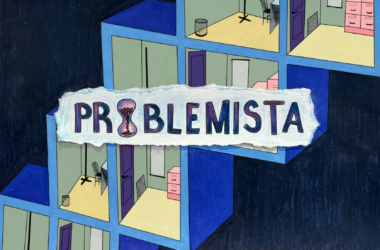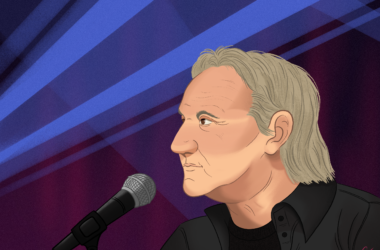In an era where there is more television available to us than we could ever consume, the medium of T.V. is undergoing a change—and hopefully one for the better. FX President John Landgraf stated last year that we are living in a period of “peak TV” in the West. Given the sheer volume of new shows inundating audiences each day, it is hard to argue against that. Although this great incursion of content requires more sifting and filtering by the audience, it is breeding a new generation of viewers. New genre mashups such as the drama-comedy, found in FX’s new show Atlanta, are exemplary of how the medium of television has had to catch up to cater to a smarter generation of T.V. watchers.
Creator, writer and star Donald Glover has masterminded one of fall 2016’s freshest and most absurdly funny shows, FX’s Atlanta. Atlanta follows its protagonist Earnest “Earn” Marks (Donald Glover), a Princeton dropout-turned-manager trying to get his cousin, Paper Boi’s (Brian Tyree Henry), rap career off the ground. During first viewing, Glover’s pedantic new show may not seem packed with jokes—there aren’t many laugh out loud moments or big punchlines. Instead, the humour is typically off-centre and blurred in a cloud of marijuana smoke. This moody atmosphere, paired with the show’s ability to make its characters so unique yet perfectly realized, distinguishes it from most shows on T.V.
Atlanta is aesthetically beautiful—full of wide shots that depict its namesake city in a unique light. It takes the setting away from the hustle and bustle of the metropolitan and toward a black suburban community. Local diners and detention centres are at the forefront, rather than tourist spectacles.
The audiovisuals of the show represent the city spectacularly, making Atlanta a living, breathing character in its own right. The soundtrack embraces the recent rise of new-Atlanta trap music, neither positing it as the city’s greatest achievement, nor playing it down as simplistic. There is no set intro theme music to the show. Rather, each episode features music relating to the major theme of that episode. For example, in the second episode, in which the two main characters are in prison, the Tennessean rapper Yo Gotti’s “Law” plays in the background and is integrated seamlessly into the episode.
Even in a much more diverse network environment, it’s still uncommon to see a story so unequivocally centred around the African-American experience. It is evident in the shows writing that Glover understands how much of black culture has been claimed by the rest of the world—he even pokes fun at it in episode four, when Glover chooses a black actor to play Justin Bieber. Atlanta is also not scared to delve into topics of police brutality, transphobia, mental illness, and the perils of fame, offering up tonal shifts scene-to-scene and illustrating how subtle humor can be. The show moves effortlessly between these serious, poignant topics and more absurd humour—one character ponders a world where mice could be used as cell phones.
The rise of the drama-comedy is helping push the boundaries of television. It is no longer solely a writer’s medium, although great writing is still very much ingrained in great T.V. shows. Atlanta takes controversial subject matter and portrays it in a way where viewers aren’t scared, but rather, enthralled by what’s discussed. The message of Atlanta is not only that it is ok to talk about these issues, but that it is possible to laugh at their absurdity.









